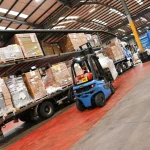
How to Meet International Standards for Avocado Exports with Certified Wooden Pallets in Kenya
Introduction
Kenya’s avocado export industry is rapidly growing, but meeting international standards is crucial for market access. Using certified wooden pallets ensures compliance, enhances efficiency, and protects against export bans.
Understanding International Export Standards
Key Requirements for Avocado Exporters
Exporters must comply with strict regulations, including phytosanitary measures, packaging requirements, and product quality checks.
Role of Wooden Pallets in Compliance
Certified pallets help maintain the integrity of shipments, prevent contamination, and ensure smooth customs clearance.
Why Certification Matters for Wooden Pallets
ISPM 15 and Global Trade Compliance
The International Standards for Phytosanitary Measures No. 15 (ISPM 15) mandates that wooden pallets be treated to prevent pest infestations.
Benefits of Certified Wooden Pallets
Certified pallets minimize risks, improve shipment acceptance, and reduce potential fines or rejections at international borders.
How to Identify Certified Pallets
Look for ISPM 15 stamps, supplier certifications, and compliance documentation when sourcing pallets.
Selecting the Right Wooden Pallets for Avocado Exports
Essential Features of Export-Grade Pallets
Durability, proper dimensions, and compliance with weight capacity standards are key factors.
Heat-Treated vs. Non-Treated Pallets
Heat-treated pallets meet ISPM 15 standards and reduce the risk of pest-related rejections.
Best Sources for Certified Pallets in Kenya
Exporters should work with reputable suppliers and government-recognized manufacturers to ensure compliance.
Challenges in Meeting Export Standards and Solutions
- High cost of certification and compliance measures
- Limited awareness among small-scale exporters
- Need for government incentives and training programs
Case Studies: Kenyan Exporters Achieving Compliance
Examples of Kenyan avocado exporters who successfully transitioned to certified wooden pallets, resulting in smoother export processes and expanded market reach.
Common Misconceptions About Certified Wooden Pallets
- Myth: Certification is unnecessary for all markets
- Reality: Many countries require ISPM 15 compliance for wooden packaging materials
- Myth: All wooden pallets are automatically compliant
- Reality: Only heat-treated and properly certified pallets qualify
Best Practices for Handling and Maintaining Certified Pallets
- Store in dry, pest-free environments
- Conduct regular inspections for damages or signs of contamination
- Train workers on proper handling procedures
How to Transition to Certified Wooden Pallets for Exporters
Exporters should establish partnerships with certified suppliers, attend industry training programs, and seek government support to ease the transition.
Frequently Asked Questions (FAQs)
1. Why is pallet certification important for avocado exports?
Certification ensures compliance with international regulations, prevents pest contamination, and facilitates smoother customs clearance.
2. How can I verify if my pallets are certified?
Look for ISPM 15 markings and request certification documents from suppliers.
3. Are certified wooden pallets more expensive?
Initially, they may cost more, but they reduce risks, fines, and shipment delays, making them cost-effective in the long run.
4. Where can I source certified pallets in Kenya?
Certified suppliers, government programs, and recognized manufacturers are the best sources.
5. What happens if I use non-certified pallets?
Your shipment may be rejected, delayed, or incur fines, affecting business profitability.
6. Do all export markets require ISPM 15 compliance?
Most major markets, including the EU and the US, mandate compliance for wooden packaging materials.
Conclusion
Meeting international standards for avocado exports in Kenya requires certified wooden pallets. By investing in compliance, exporters can enhance their market reach, reduce risks, and contribute to sustainable trade practices.





Add a comment